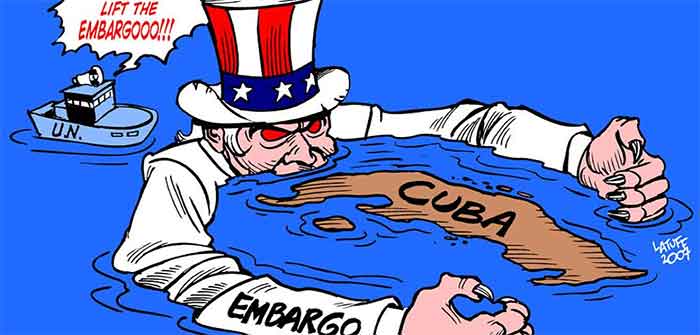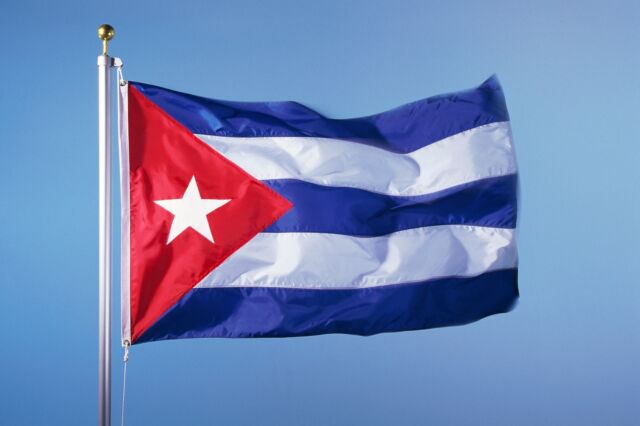
On September 25, 2022, Cuba passed one of the world’s most progressive codes on families. All in one go, the small island nation legalized same-sex marriage, defined and upheld the rights of children, the disabled, caregivers, and the elderly, and redefined “family” along ties of affinity rather than blood. This opens the concept of “family” to include nontraditional forms of familial relations, which exist outside the model of the heterosexual nuclear family.
Hailed as “revolutionary” by many in Cuba, the code will help provide protections to people who would have otherwise faced discrimination in society while ensuring that Cubans in same-sex relationships who wish to marry now have the legal right to do so.
According to young Cubans and social movement leaders, whom I spoke to about the Family Code while attending a conference titled “Building Our Future” in Havana in November 2022, the code is a reflection of a dialogue between the Cuban people and their government.
In the time since the code was passed, the Cuban government remains in dialogue with the people. The Ministry of Justice is still holding seminars in provinces throughout Cuba for people seeking answers to questions that have come up during the implementation process. The Family Code has been influencing everything from sports to property relations. Notably, in just the first two months of the law being passed, 112 same-sex marriages were registered.
A Revolutionary Code
“It’s a revolutionary code that will change the thinking and the vision that Cubans have regarding… discriminations that can happen in society,” said Jose Luiz, a third-year international relations student at the Higher Institute of International Relations Raul Roa García. The Family Code legalizes and broadens the definition of a “family” far beyond the traditional definition. The code “will bring new protections to people who have, in one way or another, been discriminated against,” Luiz told me.
Cuba ratified a new constitution in 2019. The constitution was written through “popular consultations” with the Cuban people. Through this process, Cubans participated in community discussions with government officials to both discuss and amend the constitution. Article 68, which called for defining marriage as a union between two people, thus legalizing same-sex marriage, was mentioned in 66 percent of popular consultation meetings. A majority of the Cuban people involved in these processes supported maintaining the definition of marriage as being a union between a man and a woman. This is partly due to historic prejudices against LGBTQ+ people that are prevalent across the Americas, and partly due to Cuba’s growing conservative evangelical movement, which opposes progressive social reforms such as same-sex marriage.
After intense debate regarding Article 68 among the Cuban people, the constitutional commission decided not to include the proposed language in favor of same-sex marriage and instead pushed the decision of addressing the matter through a future “family code” legislation. This legislation became the 2022 Family Code.
‘Popular Consultation’: A Government in Dialogue With Its People
In order to overcome social conservatism to pass one of the most progressive Family Codes in the world, Cuba underwent a meticulous process of popular consultation, from February 1, 2022, to April 30, 2022. The National Assembly of People’s Power stressed the importance of Cubans familiarizing themselves with the code, in order to prevent feelings of uncertainty. Through this process, the Cuban people made more than 400,000 proposals, many of which were included in the finalized code. Minister of Justice Oscar Manuel Silvera Martínez said that the 25th version of the code, presented to and approved by the National Assembly, “was more solid because it was imbued with the wisdom of the people.”
Young people played a central role in the process leading up to the approval of the Family Code. “The Cuban youth… are involved in all tasks that are deployed by the Cuban revolution,” said Luiz. “We also participated in our referendum for our constitution in 2019. We were in popular committees, discussing the constitution and we contributed to that.”
In 2019, Cuba held a referendum on a new constitution. The referendum passed with a majority vote of 86.85 percent, which is about 73.3 percent of the total electorate. The referendum was preceded by a popular consultation process, in which a draft constitution was discussed in 133,000 public meetings nationwide, where the people of Cuba submitted 783,000 proposals for changes. Cuban officials stated that almost 60 percent of the draft constitution was modified based on the proposals submitted by the public during the popular consultation process.
“I remember at my college, we had meetings to explain the [Family Code], and for us as students to give our perspective of the code and propose something for the code,” Neisser Liban Calderón García, also a Cuban international relations student, told me. “But after we did that at college, we had the same thing in our community, with a different perspective because at college we are with our friends, with [other] students; but in the community, we are with people from all ages and from different families.” García, who has a boyfriend, told me that he is glad that he will now have the opportunity to marry in the future.
The results of this popular process speak for themselves: With 74.01 percent of eligible voters participating, the Family Code passed in a landslide victory with 66.87 percent of votes in favor.
“The day that… [the Cuban people] voted for the Family Code in the popular referendum, I also participated directly in the polling station,” said Luiz. “I could see the high participation of the people in the process, and the high acceptance and eagerness for the approval of the code.”
As Luiz mentioned, some young people had the opportunity to participate in an even more direct way. “Through the University Student Federation [FEU], we have meetings with the leadership of the country. For example, my institute had a meeting with the president. And in that meeting, we described the vision we have as revolutionary and communist youths, the vision we have of the change that needs to happen regarding the base and the leaders of the country,” Luiz said. “We have a voice [as youth] in every space that we have, including the president of FEU [who at the time was law student Karla Santana]. She is part of the National Assembly of People’s Power in Cuba. And she shares her perspective with the Cuban government regarding the thinking of the youth and its tradition in the Cuban revolution.”
Gretel Marante Roset, international relations officer for the Federation of Cuban Women, told me that the women of Cuba played a special role in the process of creating the Family Code. “Our commander in chief [Fidel Castro] said that the Federation of Cuban Women is a revolution within another revolution. Women in Cuba are beneficiaries and protagonists of our own development.” Women hold half of all national parliamentary seats in Cuba.
“The Federation of Cuban Women was part of the commission writing the draft of the Family Code to propose the text and interpretation of gender equality,” Marante Roset told me.
“About the Family Code, I think that the document is for the future. It is based on love… recognizing other types of families, joint human rights… I think that this is the future for Cuba,” Marante Roset said.
Natalia Marques is a writer at Peoples Dispatch, an organizer, and a graphic designer based in New York City.
This article was produced in partnership by Peoples Dispatch and Globetrotter.













































